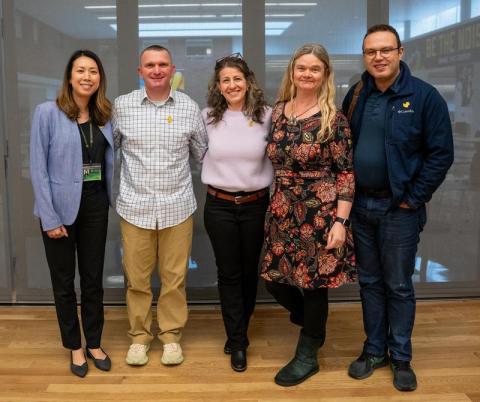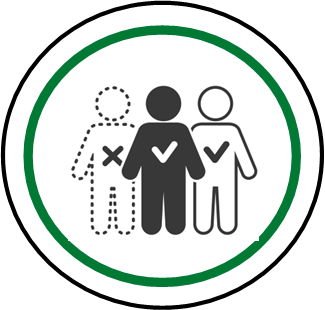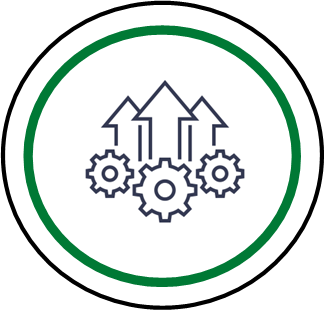Employee engagement is important for everyone who works at UO, including faculty, officers of administration, classified employees, graduate employees, and student employees. It represents an employee’s emotional commitment to an organization; it is reflected in an individual's effort and actions within the workplace. The degree to which someone is engaged at work directly impacts their employment experience, their individual effort and actions, and their overall sense of belonging.

Guide to Employee Engagement
Engagement is a shared responsibility.
Engagement is the responsibility of every member of the UO community from leaders to individual contributors.
Organization
University of Oregon
- Provide resources — human, technical and financial.
- Set overall direction and vision and remove barriers.
Leadership
Academic and administrative leaders such as deans, vice presidents, unit heads, department heads, program directors and their management teams.
- Understand and communicate the importance of creating a culture of engagement.
- Reinforce values and direction through role modeling, actions, and decisions.
Managers & Supervisors
Anyone who supervisors the work of others, directs work, or is responsible for the management of an academic or administrative program, unit, department, or team.
- Create an environment in which engagement can happen.
- Translate organizational goals and visions to team priorities, goals, and tasks.
- Provide ongoing feedback and development for every team member.
Teams
A group of individuals working on the same project or within the same unit or division to collectively achieve common goals.
- Create the team’s culture.
- Develop and implement goals and plans to drive engagement.
- Reinforce good work and communicate team needs.
Individual
Each individual contributor across all employee groups - faculty, officers of administration, classified employees, graduate employees, student employees.
- Maintain their own engagement.
- Create and implement goals and plans to enhance engagement.
- Support the engagement of others and the team.
Engagement makes a difference.
Engaged employees are more productive, absent less often, and safer at work. Here are just some of the ways that engagement makes a difference.*






*Adapted from resources provided by Gallup, Inc.
Manager & Supervisor Strategies
Employee engagement is not about pushing for more productivity. Academic and administrative managers and supervisors play a key role in developing and encouraging a culture of engagement. The manager's toolkit provides strategies and action items they can incorporate to develop and maintain strong working relationships with the people they supervise and support.
Employee Strategies
Incorporate strategies into your day to strengthen relationships in the workplace, enhance your own well-being, and support your unit or department.
Engagement Spotlight - Finding Connection at Work
The antidote to workplace disconnection is promoting friendship and meaningful connection at work. Studies have shown that building close relationships with colleagues is one of the most important factors in determining job satisfaction. Many articles and studies in recent years have taken a closer look at connection in the workplace, especially with the growing number of remote and hybrid workers. The strategies and insights are applicable regardless of work modality. We spend a considerable amount of time each week working, so we should not underestimate the importance of having friendships at work and the impact that social connection has on our well-being.
Feeling connected to one another is a key component of fostering a caring and productive workplace, a pillar of employee engagement. Information, resources, and suggested actions for promoting a caring and productive workplace are included in the UO Employee Engagement Guide.
Employee Tip
Seek out connection at work to build trust, leverage support, and beat loneliness.
Manager Tip
Build a connected workplace, show support, celebrate the highs, and bounce back from lows.
